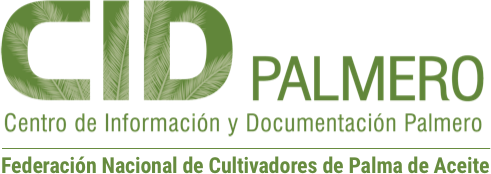| dc.creator | Obando, Oscar | |
| dc.creator | Beltrán G., Jorge A. | |
| dc.creator | Motta V., Dumar F. | |
| dc.creator | Burgos R., Carlos A. | |
| dc.date | 2009-01-01 | |
| dc.date.accessioned | 2020-07-25T11:19:55Z | |
| dc.date.available | 2020-07-25T11:19:55Z | |
| dc.identifier | https://publicaciones.fedepalma.org/index.php/palmas/article/view/1456 | |
| dc.identifier.uri | http://repositorio.fedepalma.org/handle/123456789/140083 | |
| dc.description | Decide the degree of importance of each research issue in the different zones of the country is a difficult task, which should be done by the national research centers in specific crops and other institutions due to the limited economic resources available. The sanitary problem, which exists in different degrees in the palm zones represents a serious threat to the sustainability of the sector and it is practically impossible to carry out all the research that may be necessary. Cenipalma has developed a methodology through which their own researchers along with plantation and mill technicians work together with the aim of establishing on objective scale for the relevant research topics. The current phytosanitary problems identified in the palm sector has allowed the industry to take steps that enrich and strengthen the sanitary and technology transfer programs as wells as setting up short, medium and long term interdisciplinary efforts by Cenipalma. | en-US |
| dc.description | Decidir la escala de importancia de los temas de investigación para las diferentes zonas del país es una difícil tarea que deben hacer los Centros nacionales de investigación en cultivos específicos y otras instituciones, debido a los limitados recursos económicos disponibles. La problemática sanitaria que en grados diversos registran las zonas palmeras constituye una seria amenaza para la sostenibilidad del sector, y llevar a cabo todos los estudios que pueden ser necesarios es prácticamente imposible. Cenipalma ha desarrollado una metodología mediante la cual investigadores propios y técnicos de las plantaciones y plantas beneficio trabajan en conjunto, con el fin de establecer una escala objetiva de temas de investigación relevantes. La problemática fitosanitaria actualmente identificada en el sector palmero ha permitido que el gremio inicie acciones que enriquecerán y fortalecerán los programas de sanidad y transferencia de tecnología; además se establecerán acciones interdisciplinarias de Cenipalma en el corto, mediano y largo plazo. | es-ES |
| dc.format | application/pdf | |
| dc.language | spa | |
| dc.publisher | Fedepalma | es-ES |
| dc.relation | https://publicaciones.fedepalma.org/index.php/palmas/article/view/1456/1456 | |
| dc.rights | Derechos de autor 2017 Revista Palmas | es-ES |
| dc.rights | https://creativecommons.org/licenses/by-nc-nd/4.0 | es-ES |
| dc.source | Revista Palmas; Vol. 30 Núm. 3 (2009); 83-96 | es-ES |
| dc.source | 0121-2923 | |
| dc.subject | palma de aceite | es-ES |
| dc.subject | elaeis guineensis | es-ES |
| dc.subject | transferencia de tecnología | es-ES |
| dc.subject | metodología | es-ES |
| dc.subject | control de enfermedades | es-ES |
| dc.subject | Colombia | es-ES |
| dc.subject | Sector palmicultor | es-ES |
| dc.title | Methodology for the identification and prioritizing research and technology transfer in the Colombian palm sector : the priority diseases and plagues in the palm zones | en-US |
| dc.title | Metodología para la identificación y priorización de la agenda de investigación y transferencia de tecnología del sector palmero Colombiano : las enfermedades y plagas prioridades en las zonas palmeras | es-ES |
| dc.type | info:eu-repo/semantics/article | |
| dc.type | info:eu-repo/semantics/publishedVersion | |


